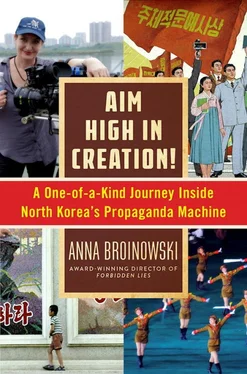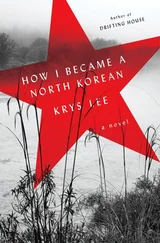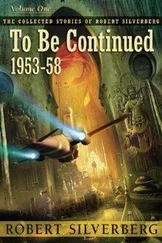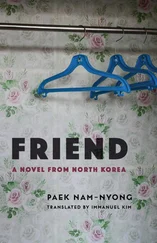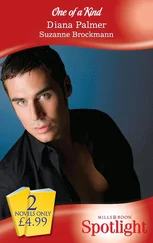“ Ewww! ” Nic, Sun Hi, and I say, sharing a moment of girly horror. The guide laughs: “Turtle brain has a real kick, when you mix it in alcoholic drinks.”
Sun Hi titters nervously
“What did he say?” I ask. Her translation is pure poetry: “It is also beneficial for the adults’ health.”
We drive up a steep hill facing the apple orchards. The trees stretch all the way to a low shelf of mountains bordering the valley. The rain has started to fall in soft grey sheets, and Q holds a plastic protector over Nic and the camera, so she can line up her shots. It’s quiet and still in our plastic cocoon, and the cottages nestled below look as pretty as a Normandy postcard. The village, at least, appears to be inhabited: in three minutes, I count eight bicyclists and four walkers, and two schoolboys carrying posies of red flowers. They noodle along in their sailor suits, chatting contentedly. Then they look up and see us and immediately split apart—disappearing into the alleys as fast as they can without breaking into a run. Nic attaches Kim Kardashian to the Sony to get an extreme wide. The orchard’s main road dissects her shot in a straight line, right up to the foot of the mountains. “When you frame it symmetrically like this, it looks like something from one of your movies, doesn’t it?” I say to Q. It’s the first time I’ve directly addressed him.
He looks at me with his intelligent, heavy-lidded eyes. “Yes,” he says, smiling.
With our landscapes in the can, Nic and I stretch out in the van, glad to be out of the rain. We pass wide wet fields and copses of birch and people hunched over bicycles in black tarpaulins, flapping along the highway like bats. Behind high stone walls, we glimpse the odd thatched roof, the occasional mural of Kim Jong Il. We plunge into a long tunnel, and on the other side of it, through the trees, I spot what looks like a town. “Please can we stop, Tongji Q? It’s the only town we’ve seen,” I beg. Q looks at me carefully in the rearview mirror—making a point of waiting for Sun Hi to translate. Then he tells the driver to stop. As long as we don’t leave the road, we may pick off a few shots. Q doesn’t get out to check the viewfinder: we’re either too far away from Pyongyang for it to matter, or he’s unfamiliar with the power of the photoscopic lens. Nic attaches Lady Gaga to the Sony, and the town sits magnified before us.
The clay buildings are narrow and up to six storeys high, the roads between them unpaved. People walk to and fro under umbrellas, gathering around the tents of a ramshackle market tacked to the edge of a muddy square. No one is skeletal—but the knife-sharp cheekbones on several faces suggest that three meals a day could be a luxury. A man in a faded army jacket squats under an awning, cobbling shoes, and a girl in a skirt balances side-saddle on the back of her boyfriend’s bicycle. Through a ground-floor window, we see a string of plastic flowers looped along a wall, and people sitting beneath it, eating from steel bowls. Further back there’s a large but decrepit building, flanked by a low wooden stage and framed by the red-and-white slogans we’ve seen in Pyongyang. In the foreground, three twelve-year-old girls skip along a path, pushing hula hoops. The low-slung cottages they’re skipping past, while distinctly impoverished, are clean.…
“You must stop now,” Sun Hi says firmly, and we climb into the van, treasuring our thirty-two seconds of uncensored access. I give Q a grateful smile. He reaches over to hold the camera so Nic can buckle her seatbelt, and his cuff rides above his wrist. On the smooth skin of his inner arm, faded with age, are five tattooed numbers. They look functional, not decorative: like the ID tattoos worn by the survivors of Auschwitz. Before I can study them, Q’s cuff slides back down, and he turns to the front. We drive into the twilight, lapsing into the companionable chatter of a road trip successfully shared. Sun Hi grills Nic about what “rents” and “mortgages” are, and Mr. Wang and the driver idly dissect some Pyongyang soccer game.
But Q is silent. I gaze out at the misty fields, stunned. So what if I can’t put Kim Jong Il’s glove in my movie, or if Dresnok hates me and our scene tomorrow is a disaster? Who cares if we don’t get our rushes out of the country, or I end up making a movie that no one understands? What does it matter that I’ve lost my marriage, when my daughter is thriving, and I know that she’s safe at night? Q, a father of four, appears to have gone through more than I ever will.
Nic packs up the Sony to discover we’ve lost our lens cap—probably back on the highway, in front of the town. I tell her not to worry. Compared with whatever hell Q has survived, the idea of filling out lengthy insurance forms now feels like a luxury.
“YOU BOWL, THEN TURN WITH GREAT joy to your husband, and say: ‘Strike!’” says Ri excitedly. I nod, and he barks at the makeup lady: “Brush her hair, for God’s sakes, or she’ll look like a spinster!” Sun Hi giggles, but doesn’t translate. In my wildest dreams, I never thought I’d end up in a white jumpsuit with Joan Collins hair, playing an “evil American bowling secretary” in Pyongyang. The bowling alley has a nineties monitor, three pink lanes, and a Lady Di poster on the wall. It’s part of a secret labyrinth of snooker bars, karaoke discos, and ping-pong rooms tucked away in the mysteriously named “Underfloor” of the Yangakkdo Hotel.
Ri strides to the camera and looks at me expectantly. All I know is that my character likes purple mascara and is married to the oldest Dresnok. The middle Dresnok is playing a Yankee spy with whom I am apparently required to flirt, but Sun Hi considers this too risqué to translate. I squint through the lights at Ri’s twenty-man crew. “What’s my motivation?” I ask, feebly.
“Just tell her it’s real,” Ri snaps—and turns to Dresnok. “It’s a shame your chest doesn’t bulge out,” he grumbles, butting out his fag. “Action!”
I hurl the bowling ball at the pins, narrowly missing a squatting man waiting to catch it. “Strike!” I say stiffly and look straight down the barrel. Ri darkens. Film stock is expensive: most North Korean actors only get two takes. “I’m sorry, I fucked up,” I mumble, and everyone looks at me in shock.
Ri mutters something, and even the Dresnoks laugh. “He said: ‘She thinks it’s digital,’” Sun Hi translates, enjoying the putdown. It takes me four more takes to finally nail the over-the-top Californian gaucheness Ri is looking for. He scutinises my face, then yells at the makeup lady: “Younger! Prettier! Younger!”
The makeup lady whips out some frosty pink gloss, which she promises will knock a decade off sun-damaged Australian skin. Ri surveys me with pity: “You’ve been directing a long time, haven’t you? It makes you look tired.” I apologise, pointlessly, for my wrinkles, and he chuckles and walks off.
“Where do you get your products?” I ask the makeup lady, who is rocking an eighties sun-visor over fifties hair. “Some are made here, some from China,” she replies, and I show her my lipstick: “Do you use Chanel?” She glances at the tube with bored disdain, a look most North Koreans cultivate when confronted with Western products. “No. This one makes you prettier,” she says and smears her pink gloss on my lips.
Powdered and pouffed, I join the sullen Dresnoks under the lights, feeling like Norma Desmond from Sunset Boulevard . She had five hours to transform herself into an object of desire for younger men; I’ve had five minutes. In this scene, I must wipe Husband Dresnok’s brow with a cloth, while Spy Dresnok makes eyes at me. All right, Mr. Ri, I’m ready for my close-up, I feel like saying, reminding myself there’s nothing tragic about being fortysomething, as long as you’re not trying to be twenty-five.
Читать дальше
